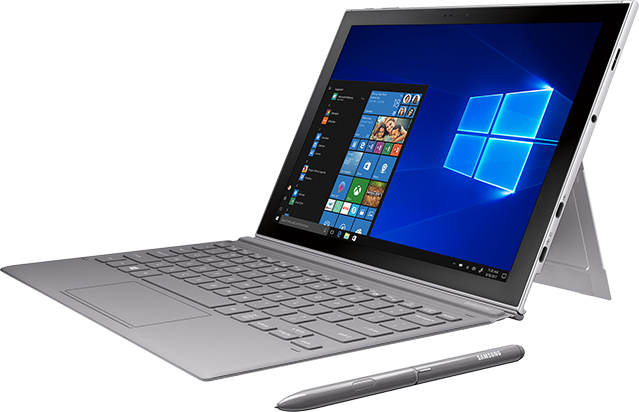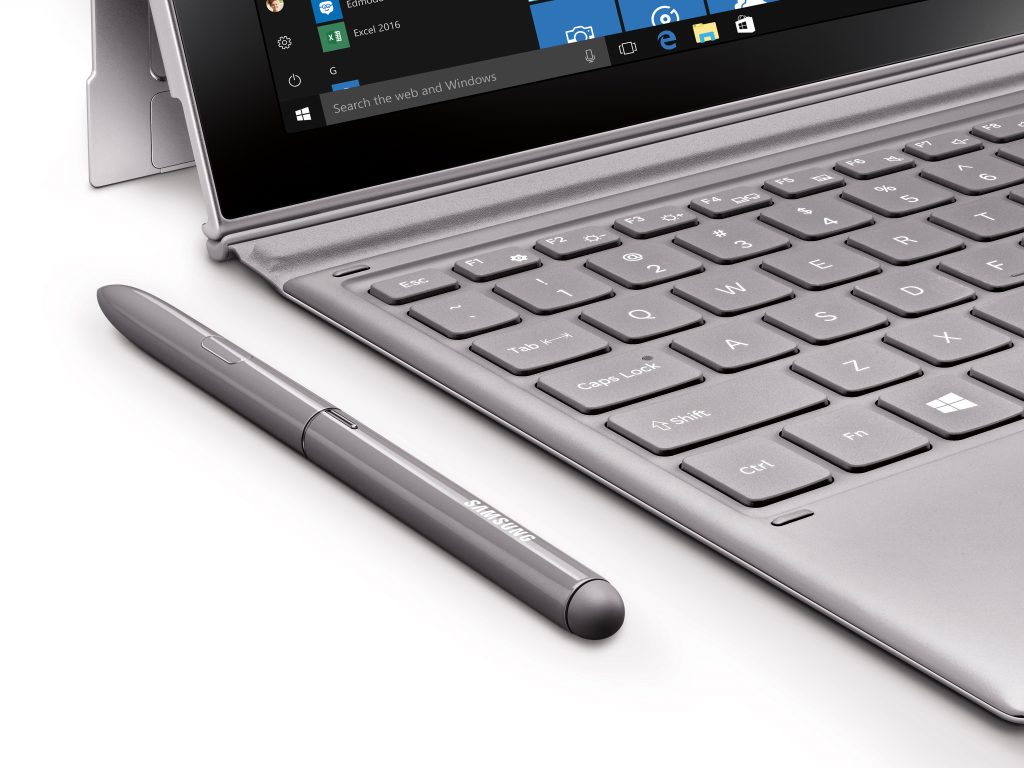With the advent of 5G, we’re entering the new era of always-connected laptops. However, 5G isn’t exactly here yet – not as here as it needs to be – and so companies are ramping up the always-connected angle with the prevalent 4G connectivity that we have today.
Samsung’s Galaxy Book 2 is such a product; externally, it looks like a (skinny) Microsoft Surface, thanks to its new kickstand, but on the inside its quite a bit different. Not only does it offer always-on 4G connectivity, but it also uses a Snapdragon 850 processor, making it one of the few Windows machines that doesn’t run on an x86-based processor.
This combination offers incredible battery life, constant (and instant) connectivity, alongside all the functionality you’d expect from a 2-in-1 tablet-come-laptop. There are some questions though around app compatibility and power, which may make you think twice.
What’s it good at?
- Excellent battery life compared to most laptops
- Sturdy kickstand for use on a desk, your lap or as a tablet
- Fast, always available gigabit LTE
- Included S-Pen and keyboard in the box – no extra spend
Samsung’s Galaxy Book 2 mightn’t be the prettiest thing to look at, but it’s easy on the eyes. Its magnesium construction looks and feels good, and the dark silver colour is appealing. It’s obviously designed to mimic the Microsoft Surface, but it does so with a bit of Samsung flair.
Equally, the companion keyboard is quite nice – there’s no Alcantara here – and while it’s sturdy with good key travel, the flex in the keyboard itself can make some mouse clicks a bit harder to register. It’s good for typing on, but perhaps not writing a book. Better for on the go use.
The size and weight of the tablet (big and not all that heavy, respectively) make it a great media consumption device; a great big 12-inch screen is great for watching movies and TV shows, and the AMOLED display tech means you’ve got black blacks and very vivid colours. The AKG tuned speakers deliver a great audio experience.
For your day to day needs, the Galaxy Book 2 excels. From checking your email, browsing the web, watching some Netflix and tackling a Word document, you’re covered. However… once you start to demand a little more from the Galaxy Book 2, the limitations of the ARM processor start to become apparent.
All things considered though, the compromises here aren’t manifest; yes, you lose a little bit of raw power, but you gain battery life that lasts easily a full working day off the power, always on connectivity that Intel-based machines struggle with, and an extremely portable device.
I witnessed battery life in excess of 14 hours from the Galaxy Book 2, and that’s stellar.
On that always-on connectivity, Qualcomm definitely has the chops when it comes to mobile radios, and the Galaxy Book 2 packs a Cat 18 X20 LTE modem that can theoretically hit 1.2 Gbps, which is better than Intel’s Cat 10 XMM 7360 that peaks at 450 Mbps.
On Australia’s carriers, you probably won’t ever hit those speeds, but with a Telstra SIM in, and in good coverage, speeds of around 200mbps were not uncommon. For a mobile device, moving around, lasting all day … that’s just incredible.
What’s it less good at?
- As good as it is, the Snapdragon 850 processor isn’t as powerful as Intel-based chips
- The ARM processor means that some apps just won’t work
Unlike the days of yore, you don’t need to concern yourself too greatly with downloading apps designed for the Qualcomm Snapdragon architecture. You can download x86 apps (which is basically most apps these day) and for the most part, they’ll run without issue thanks to a transparent emulation layer. You may notice some lag because of this, but for run of the mill apps, that’s not going to upset you.
However, for more CPU intensive apps, that translation can slow things down a little more. Equally, resource hungry apps like Google Chrome can really crawl to a halt if you’re using more than a couple of tabs. You need to be a little smarter with resource management with a Snapdragon 850-based machine like this, but it’s not a showstopper.
What else should I consider?
In short, there aren’t any entirely direct competitors; Qualcomm’s Snapdragon 850 exists in the Galaxy Book 2, and nowhere else at the time of writing.
For power users, you’ll be wanting to consider something that probably drops the 4G connectivity in favour of a Intel-based chipset for more power. The downside is you’ll likely lose battery longevity and connectivity, but you’ll gain in power.
The toughest competitor, albeit with a different offering, is the Microsoft Surface Pro 6; with stylish design, long battery life and greater app compatibility (and power), about the only thing you lose is LTE connectivity, and about $200 to add in a keyboard and pen (which Samsung includes in the base cost).
Should you buy one?
If you’re after the ultimate in on-the-go connectivity with reasonable power and battery life that won’t leave you with anxiety after an hour or two, the answer is yes – this is the device for you.
However, there are some gotchas.
While Microsoft has come a long way in enabling native 64-bit app compatibility for Windows on ARM (which this is), those speed tradeoffs can be a bit of a letdown.
I personally quite like the Galaxy Book 2, but I need a little more power, and I can do without the always-on connectivity. For people who prize battery life and connectivity above all else and do most of their work in a browser, get yourself the Galaxy Book 2 — it will do just fine.






A question as a consequence of Google officially throwing in the towel on tablets:
Can this Samsung Galaxy Book 2 make/take phonecalls? I don’t mean through Skype or another VoIP service, I mean directly used as a cellphone.
You know what, I didn’t try. I’ll pop a SIM in it tonight and check.
It can display SMS received, but can’t send them. No calling/receiving call functionality that I can see.
Thanks for running the tests Chris. It’s disheartening to learn from the outcome of those tests that this Windows tablet can’t be used as a phone.
What Samsung’s Android tablets can do at present, was not what I was asking about.
With Google throwing in the towel on making/selling Android tablets, I’m looking ahead, to when Google fully pull the plug on Android supporting tablets altogether.